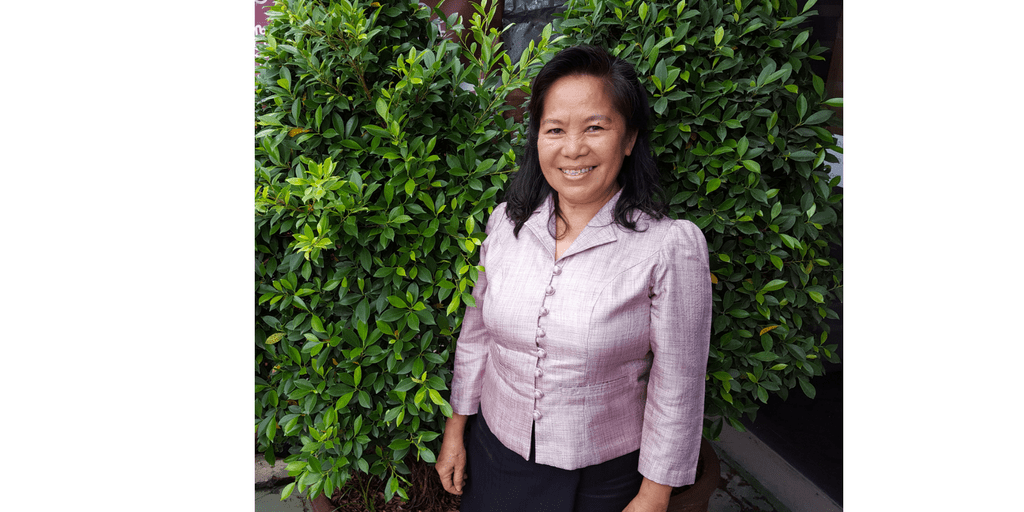
Throughout the year we have conducted a series of interviews with current and former civil society leaders.
Civil society represents the space in which ordinary citizens contribute and participate in their democracy. Through civil society, people find solutions to community problems, demand change in government policies, raise public awareness and increase citizen participation – all critical components of a thriving democracy. Through IRI’s partnerships with civil society groups throughout the world, we empower citizens to find solutions to community problems and be the voice of society’s most vulnerable.
This is the third blog post in the series. You can read the second first blog HERE and the second HERE.
The following is a condensed and edited version of the interview with Khamla Phoutharath, the national director of Love Natural Resources Association (LNRA), based in Vientiane, Laos.
IRI: What drew you to civil society work?
Phoutharath: Prior to starting LNRA, I worked with numerous international non-governmental organizations (INGOs), including the American Friends Service Committee (AFSC) and the United Nations Development Program (UNDP).
In 2009, the Lao government passed a ‘Decree for the Regulation and Operation of Lao Non-Profit Associations (NPAs),’ which permitted the creation of civil society organizations (CSOs) in Laos. Leveraging my nearly two decades of international experience in community development, I decided to start a non-profit association (NPA). My experience working in INGOs informed my colleagues and myself about the issues facing the Lao population like poverty, gender inequality and ethnic minority rights.
IRI: What has been your most significant achievement?
Phoutharath: NPAs and government officials told me that NPAs had little to no experience contacting the government to coordinate programming. From my experience working with INGOs, I had a unique understanding of this sort of outreach.
In 2015, LNRA received funding from IRI to write a guidebook for NPAs on government outreach and communication best practices. We organized a workshop based on the guidebook’s content with district level officials. Officials that participated told us our guidebook was very useful not only for NPAs, but for anyone in Laos looking to correspond with the government.
IRI: What is a big challenge you have faced during your work?
Phoutharath: Securing funding for programming is the greatest challenge for LNRA – as well as for many other Lao NPAs. Despite having the technical knowledge to implement programming, LNRA cannot always find donor support for projects.
IRI has been very useful for us to understand how to capture funding. IRI facilitated a training with Village Focus International (VFI) on how to write proposals. After the training, IRI asked us to submit a proposal for the Guidebook previously mentioned, which IRI later decided to fund.
Once we started our program, IRI also helped us understand how to write reports. At first, I found it difficult to write a report, but throughout the course of our grant, IRI advised us on best practices for documenting programmatic success stories and now we are confident in our skills.
IRI: Where do you see your organization going with civil society work in the future?
Phoutharath: My dream is to get more young people involved in NPAs. My dream for LNRA is that we can provide capacity building trainings for young people and become a resource for other NPAs. After finishing school, Lao youth often have limited leadership experience and need to find work. In the last two to three years, Lao youth have grown more interested in working with NPAs.
LNRA has hosted discussions about the work of Lao NPAs and after these meetings, many youth participants want to volunteer to work with us. University students are also interested in attending trainings on project management and proposal writing. Unfortunately, NPAs frequently have to turn young people away from trainings because they have already exceeded the number of training participants.
IRI: What additional topics would like to do workshops on?
Phoutharath: Workshops on NPA management and leadership would be very beneficial. Leadership training is especially important for women—Laos needs more confident women leaders. Men are often considered to be “the boss” and it is difficult for some men to accept women as leaders. For example, if men are participating in a workshop, women who are part of certain ethnic minorities cannot actively participate because men are considered to be the heads of family and the village.
IRI: What advice do you have for other women who want to do what you do?
Phoutharath: Keep strong. Learn new things and learn them often. Women, in particular, need to learn more and be stronger so their voice is heard.
Top